Qatar Foundation’s Qatar Science & Technology Park (QSTP) has seen several remarkable achievements recently, including attracting new occupants at the Free Zone.
Achievements include the leader of the Russian oil industry, ‘Rosneft Oil Company’, setting up its first ever international research and development centre in the Free Zone. It has also become home to the first Microsoft Azure Data Center in Qatar in collaboration with MEEZA.
The Free Zone also attracted one of the largest defence companies in Turkey, ‘Aselsan’, to locate one of its branches there. The present occupancy rate is 90% .
“QSTP focuses its attention on attracting very high caliber companies which are seeking to bring value into Qatar and offer some unique solutions to the market. Our selective screening processes ensure that firms will contribute to transforming the region’s technological landscape and add to the research, development and innovation (RDI) ecosystem in our country. This is playing its part in our collective mission to reach the goals set out in Qatar National Vision 2030,” said Abdullah Saeed Al Naimi, Stakeholders & Government Relations Manager, Park & Free Zone Management, QSTP. “Our very location is also significant. We are based within QF’s Education City, and our partner companies can collaborate with the national research institutes in Hamad Bin Khalifa University as well as the other world-leading partner universities. There are also the benefits from our hi-tech offices, laboratories and facilities designed for tech-based firms alongside the wonderful opportunity to engage with other QSTP-incubated companies as well as global innovators,” Al Naimi told The Peninsula.
The Incubation Center facilitating and attracting local startups and entrepreneurs has expanded over recent years. The technology-focused programme concentrates its efforts on accelerating the establishment and growth of promising tech startups via swift incorporation into the Free Zone, collaborative co-working space, business facilitation and support services which include utilising a network of mentors, access to funding programmes, training and prototyping facilities.
Since 2016, in excess of 20 local firms have been incubated in the Free Zone.
